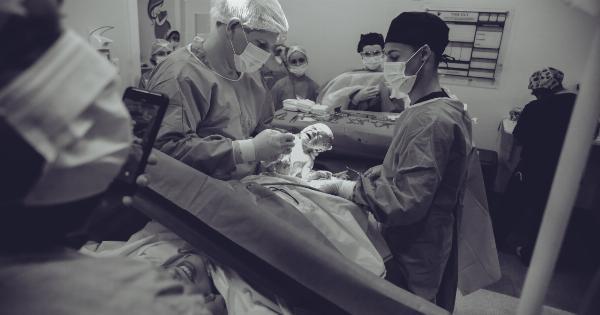Post-operative ileus is a common complication following abdominal surgery that can lead to significant discomfort and delays in recovery.
It refers to the temporary paralysis of the intestines, causing a disruption in the normal passage of waste materials through the digestive tract. This condition can result in symptoms like abdominal distention, nausea, vomiting, and the inability to pass gas or have a bowel movement.
Understanding the Causes of Post-Operative Ileus
Several factors contribute to the development of post-operative ileus:.
1. Anesthesia: The use of anesthesia during surgery can slow down normal bowel function.
2. Surgical Manipulation: The manipulation of the intestines during surgery can lead to inflammation and reduced motility.
3. Medications: Certain pain medications can cause constipation and disrupt normal bowel movements.
4. Abdominal Distension: Accumulation of gas or fluid in the abdomen can also contribute to ileus.
The Role of Traditional Approaches
Traditionally, the management of post-operative ileus involves supportive care, such as the use of nasogastric suction, pain management, and gradual reintroduction of oral intake.
While these approaches can be effective, they often require extended hospital stays and can result in patient discomfort and dissatisfaction.
An Unconventional Approach: Early Ambulation
Recent research suggests that early ambulation, or getting patients out of bed and moving as soon as possible after surgery, can play a key role in reducing the danger of post-operative ileus.
This unconventional method challenges the conventional approach of prolonged bed rest and shows promising results in preventing or minimizing the occurrence of ileus.
Benefits of Early Ambulation
1. Enhanced Intestinal Motility: By engaging in early ambulation, patients stimulate bowel activity, promoting the movement of waste materials through the digestive system.
2. Reduced Inflammation: Physical movement helps reduce post-operative inflammation, minimizing the risk of ileus development.
3. Improved Respiratory Function: Early ambulation can also contribute to better lung function and prevent post-operative complications, such as pneumonia.
4. Enhanced Circulation: Walking promotes blood flow and ensures adequate oxygenation to the intestinal tissues, supporting their recovery.
Implementing Early Ambulation
Early ambulation should be carefully implemented following surgery to maximize its benefits:.
1. Gradual Progression: Patients should start with short walks around the hospital room and gradually progress to longer distances as tolerated.
2. Guidance and Support: It is crucial to have healthcare professionals supervising and guiding patients during the initial ambulation phases.
3. Pain Management: Adequate pain control is essential to facilitate early ambulation and improve patient compliance.
4. Individualized Approach: Each patient’s ambulation plan should be tailored to their specific surgical procedure and overall condition. Factors like incision site, wound healing, and pain tolerance should be considered.
Other Strategies to Complement Early Ambulation
While early ambulation is a promising unconventional approach, it is important to combine it with other strategies to further reduce the danger of post-operative ileus:.
1. Medication Adjustments: Reviewing and modifying pain medications that may contribute to bowel dysfunction can help prevent or minimize ileus.
2. Optimal Fluid and Nutrition Management: Adequate hydration and optimal nutrition can support bowel function and prevent complications.
3. Bowel Stimulants: In some cases, the use of medications that promote bowel motility, such as laxatives or prokinetic agents, may be beneficial.
4. Patient Education: Providing patients with information about the benefits and importance of early ambulation can enhance compliance and overall outcomes.
In Conclusion
Post-operative ileus is a significant concern following abdominal surgery, but the conventional approach may not always yield desirable results.
The unconventional method of early ambulation provides a promising alternative, promoting better bowel motility, reducing inflammation, and enhancing overall recovery. Implementing this approach, along with complementary strategies, can help reduce the danger of post-operative ileus, leading to improved patient outcomes and satisfaction.

























